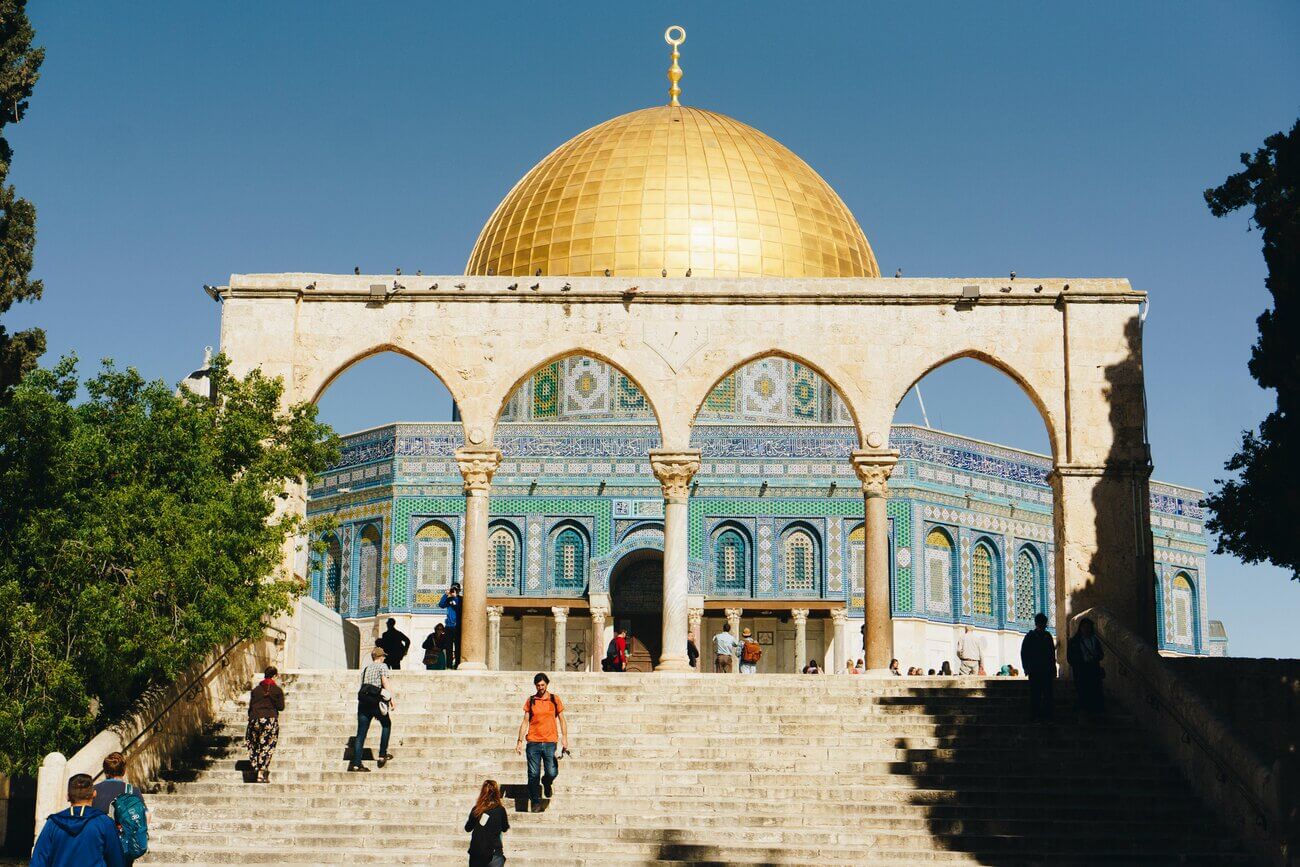
02 April 2024 - 3 min read
Stuck in a career rut? Looking for change of scenery, change of pace and new opportunities? A culturally rich and diversified region, the Middle East is becoming a hub for female expats ready for their next adventure.
With several benefits including the lack of income tax, warmer climates and a sprightly night life, it’s no surprise that the number of female expats taking the plunge is on the rise.
If you’re thinking about making a change, follow our guide for female expats in the Middle East.

When relocating, it is not always clear whether you should secure a job or relocate first. However, to reduce added stress when you arrive at your destination and to increase your chances of securing a place to live, it is recommended that you secure a job first.
To do this, we recommend that you reach out to a recruitment consultancy firm that specialises in securing job roles in the Middle East. As experts of both the recruitment market and the location in which they operate in, this increases your chances of securing employment in your chosen field.
Additionally, there are plenty of UK based agencies that have Middle Eastern offices and specialise in Middle Eastern recruitment, these include:
On top of this, it is always worthwhile doing your own research, whether that be online, or by speaking to someone you know who has relocated themselves and had to secure a new role before doing so.

If you would like to permanently move to the Middle East or live there for an extended period then, first and foremost, you will need a residence visa. There are several different types of these visas and if you are working in the Middle East, under a governmental office or a private company, you will likely be eligible for an employment visa.
An employment visa, in some cases, can be paid for by your employer, but if not, the additional types of visas include:
UAE Student Visa: for anyone who has accepted and enrolled into a university institution.
UAE Family Visa: anyone with a UAE residence visa can now sponsor residence visas for their families.
UAE Investment or Golden Visa (long-term residence): if you are making a substantial investment into UAE company or institution, you are eligible for the UAE investment visa.
UAE Retirement Visa: for those who wish to retire in the UAE and have funds to do so.
Work Remotely for a UAE program: for freelancers who wish to work remotely in the UAE.

Opening a new bank account is not something you have to think about everyday and, most often, once you have your finances in place you will use your debit or credit card without a second thought.
However, when relocating to the Middle East, it is extremely helpful to set up a local bank account, so that you can live financially independently as you do currently. This will allow you to use ATM’s, visit a physical branch and provide bank account details to your new employer.
Similarly to other countries and regions, you will be required to provide:
If you are moving to the Middle East from the UK and have UK bank accounts, it is best to speak to your personal bank institution for further detail on how to handle these accounts. In some cases, you are able to keep them, however, some bank institutions do not allow this.
Additionally, you may opt to open an international bank account, which allows you to bank and transfer funds across several different locations. However, if you are relocating and have plans to reside there for a considerable amount of time, a local bank may suit your needs best, as local banks can sometimes have limited international banking services.

If you currently live in the UK, you will be familiar with the NHS and where and who to turn to in the case of a medical emergency. A lack of this information in a new location can lead to potential accidents and feelings of anxiety, so it is best to know the ins and outs of the health services available to you in the Middle East before you relocate.
There has been a considerable surge of investment in the medical and health services in the Middle East during the last few decades and some regions now operate world-class hospitals and clinics.
It is recommended by Global Healthcare Accreditation for any expats moving to the Middle East to purchase international health insurance, this means no matter where you live in the Middle East, as the healthcare systems vary from country to country, you will have access to medical care and attention if and when you require it.
In some cases, your employer will provide a basic level of health insurance for you, as someone living and working in the Middle East, however, often this covers a basic criterion and for safety of mind, individuals often opt for full private insurance.
The top 5 global medical health care providers are:

With 85% of individuals currently living in the Middle East being Muslim, the dress code and etiquette may vary slightly to what it is in the UK.
For the most part, there is no legal dress code or requirements, but when in tourist-heavy and other popular areas, it is considered polite to dress modestly. However, when you are in public areas like hotels, beaches and pools, it is acceptable to dress as you would in any hot country, in swimwear or beachwear.
The exception to this would be if you were visiting Mosques or Souls, women are required to cover their shoulders, arms and legs out of respect. If you are unsure, it is best to bring something modest with you, or dress modestly for the occasion.
Social etiquette can vary, however, in the Middle East, the elderly are considered a source of knowledge, wisdom and experience. Due to this, they must be treated and spoken to with respect and politeness, using formal titles where necessary.
It is also seen as respectful to keep public displays of affection to a minimum, this includes hugging, kissing and in some cases, holding hands.

In general, the Middle East is a safe place for expat women to live and work, however, countries, cities and areas will vary.
In Dubai for example, expats, both male or female are considered an important part of the population and therefore, feel safe. However, in Egypt, it is recommended that female expats do not travel alone and rather in groups of females around the country as crime rates and petty theft remain considerably high.
Research does show, however, that many women feel safer in various Gulf countries than they did living in their previous homes, which suggests that with a combination of personal security and generally low crime rates, it is not unsafe for female expats to live happily in the Middle East.

With a tax free salary, plentiful of career opportunities and of course, the weather, the Middle East has been and still is an extremely popular destination for female expats.
Females are building their lives, excelling in their careers and raising their families across the globe, evidenced in around 53% of expats being woman. Although the percentage drops to 37% when specifically referencing the Middle East, research does confirm that most have found it to be an irreplaceable and live-changing experience.
Elevate your career and enrol on a professional qualification with Acacia Learning in the Middle East today.
Get information on our CMI courses